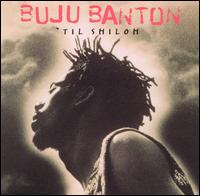
Mark Anthony Myrie, known professionally as Buju Banton, is a Jamaican dancehall, ragga, and reggae singer. He is one of the most significant and well-regarded artists in Jamaican music. Banton has collaborated with many international artists, including those in the hip hop, Latin and punk rock genres, as well as the sons of Bob Marley.
The Grammy Award for Best Reggae Album is an award presented at the Grammy Awards, a ceremony that was established in 1958 and originally called the Gramophone Awards, to recording artists for quality works in the reggae music genre. Honors in several categories are presented at the ceremony annually by the National Academy of Recording Arts and Sciences of the United States to "honor artistic achievement, technical proficiency and overall excellence in the recording industry, without regard to album sales or chart position".

Pato Banton is a reggae singer and toaster from Birmingham, England. He received the nickname Pato Banton from his stepfather: its first name derives from the sound of a Jamaican owl calling "patoo, patoo", while its second comes from the disc jockey slang word "banton", meaning heavyweight lyricist or storyteller. In 1994, he achieved a number 1 on the UK Singles Chart with a cover of The Equals' "Baby, Come Back", featuring Robin and Ali Campbell of UB40.
Rexton Rawlston Fernando Gordon OD, better known by his stage name Shabba Ranks, is a Jamaican dancehall musician. In the late 1980s and early 1990s, he was one of the most popular Jamaican musicians in the world. Throughout his prominence in his home country as a dancehall artist, he gained popularity in North America with his studio album Just Reality in 1990. He released other studio albums, including As Raw as Ever and X-tra Naked, which both won a Grammy Award as Best Reggae Album in 1992 and 1993, respectively. He is notoriously popular for "Mr. Loverman" and "Ting-A-Ling", which were globally acclaimed and deemed his signature songs.

VP Records is an independent Caribbean-owned record label in Queens, New York. The label is known for releasing music by notable artists in reggae, dancehall and soca. VP Records has offices in New York City, Miami, London, Kingston, Tokyo, Johannesburg and Rio de Janeiro. Additionally, the label has established a presence in Toronto, Australia and New Zealand.

Walking on Sunshine is the third studio album by Guyanese-British musician Eddy Grant, originally released in 1978 by Ice Records. Recorded at Grant's Stamford Hill recording studio, the album was the follow-up to Message Man (1977) and fuses styles of Caribbean music like reggae, soca and calypso with other genres, including funk and pop. The musician played most of the album's instrumentation himself, and described the record as reflecting his joyousness. However, some songs feature tough cultural themes, particularly those on the first side.

Voice of Jamaica is the third studio album by Jamaican dancehall reggae artist Buju Banton. It was released on August 3, 1993 via Mercury Records/PolyGram and was his international debut. Its remastered and expanded edition was released in 2002 with additional tracks. Recorded in Kingston and New York City, the album is considered to be the one that introduced Banton to the world outside Jamaica, also bringing dancehall to the wider world.

Inna Heights is the fifth studio album by Jamaican dancehall reggae artist Buju Banton. It was released on November 18, 1997 through Penthouse Records. Production was handled by Donovan Germain. It features guest appearances from Beres Hammond, Jahmali, King Stitt, Ras Shiloh, Red Rat and Toots Hibbert. The album was nominated for a Grammy Award for Best Reggae Album at the 41st Annual Grammy Awards, but lost to Sly and Robbie's Friends.

Unchained Spirit is a studio album by the dancehall/reggae artist Buju Banton, released in 2000. It was his first and only album to be released on the ANTI- record label, an imprint of Epitaph Records.
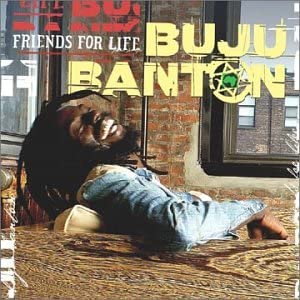
Friends for Life is the seventh studio album by Jamaican recording artist Buju Banton. It was released on March 11, 2003 through VP Music Group with exclusive distribution via Atlantic Records. Production was primarily handled by Donovan Germain and Buju Banton, along with Cool & Dre, Jammy "Jamz" James, Sheldon Stewart, Sly Dunbar, Steely & Clevie, Steven "Lenky" Marsden. It features guest appearances from Beres Hammond, Bounty Killer, Fat Joe, Nadine Sutherland, Sons & Daughters Choir and Wayne Wonder. The album peaked at number 198 on the US Billboard 200 album chart, and was nominated for Grammy Award for Best Reggae Album at the 46th Annual Grammy Awards, but lost to Sean Paul's Dutty Rock. The album was supported with charted single "Paid Not Played", which peaked at number 84 on the Official Singles Chart Top 100 in the UK.

Too Bad is the eighth studio album by dancehall artist Buju Banton, released on September 12, 2006.

Ultimate Collection is a compilation album by dancehall/reggae artist Buju Banton released in 2001.

The Best of Buju Banton is a compilation album by dancehall reggae artist Buju Banton, released in 2002.

Rasta Got Soul is the ninth studio album by Jamaican dancehall reggae artist Buju Banton. It was released on April 21, 2009 via Gargamel Music. The album features the hit single "Magic City".
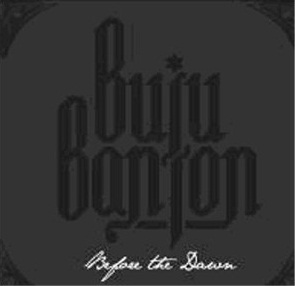
Before the Dawn is reggae and dancehall artist Buju Banton's tenth studio album. It was released on September 28, 2010. This album was recorded at the artist's own Gargamel Music studio in Kingston, Jamaica. The album was Buju's last release before he was found guilty of federal drug charges.
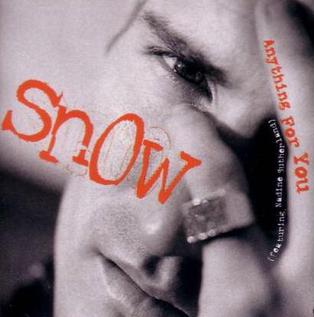
"Anything for You" is a song by Canadian reggae recording artist Snow, released as the first single from his second album, Murder Love (1995). While becoming a club favorite and a grassroots hit on The Box in the United States and Canada, the single only peaked at number 74 on the Canadian Singles Chart. The All-Star Remix, however, reached number one in Jamaica and became the country's top-selling single of 1995.

Many Moods of Moses is the eighth studio album by Jamaican dancehall musician Beenie Man. It was released on December 9, 1997 through VP Records. Recording sessions took place at Penthouse Recording Studios, Sonic Sounds, Hard Sound Recording Studios, and Anchor Studios in Kingston and at Wildwood Recording Studios in Nashville. Production was handled by Lenky, Sly and Robbie, Andrew Thomas, Handel Tucker, Bob Patin, Buju Banton, David Cole, Jeremy Harding, Tony "CD" Kelly, Lloyd "Gitsy" Willis and Beenie Man himself, with Patrick Roberts serving as executive producer. It features guest appearances from A.R.P., Bob Patin, Buju Banton, Danny Marshall, Lady Saw, Little Kirk and The Taxi Gang.

Reggae Gold 2012 is a compilation reggae album from VP Records. It was released on June 26, 2012 and Reggae Gold is an annual series from VP Records. It was launched in 1992. This Reggae Gold 2012 is the 20th edition of the series and it is a double disc CD which commemorates the series’ 20th anniversary. Since 1992, Reggae Gold has been a popular series and a big seller for VP Records. A series select each year’s most popular tunes of dancehall, roots, reggae, lovers rock.
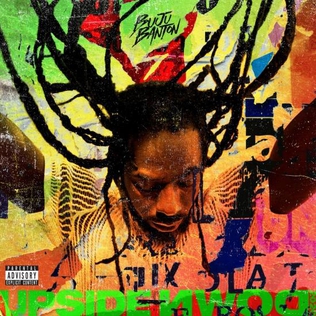
Upside Down 2020 is reggae and dancehall artist Buju Banton's eleventh studio album. It was released on June 26, 2020, through Gargamel Music and Roc Nation. The album is Buju's first release after his prison release.

Never Give In is the second album by English reggae artist Pato Banton, released by Greensleeves Records in 1987. By the release of the record, Banton had built a long-time following as an MC and deejay thanks to collaborations with other reggae artists like Mad Professor, and momentum-building tours around the United Kingdom, United States and Europe. He recorded the album with producers G.T. Haynes and Lesburn Thomas and worked with the Studio Two Crew from his native Birmingham. The record displays Banton's humorous approach to serious subjects such as drugs and poverty, which he delivers via singing and toasting, whilst the music balances roots reggae with nascent digital dancehall, with accessible grooves and a punctuating horn section. The record features collaborations with Ranking Roger, Paul Shaffer and Steel Pulse.
